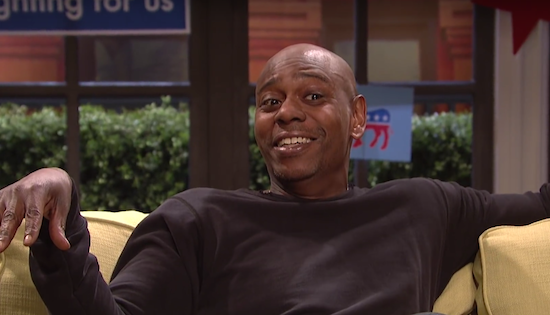Defeat Future Trumps: Teach Humor

“The human race has one really effective weapon, and that is laughter.” —Mark Twain
When Trump clinched the nomination in Indiana, I felt betrayed not by my fellow citizens, but by my art. I teach humor, write humor, believe in humor. And I couldn’t deny it: Trump’s skill with a joke was exactly what had enabled everyone to dismiss his threat, to not take (or pretend not to) his words about minorities and women as genuine. Humor had concealed the truth of Trump, like some fearsome Larry “Lonesome” Rhodes without Patricia Neal.
Of course I have always known there’s a brand of humor that’s not about empathy, but divisiveness: Tina Fey’s evil stepbrother. It’s the kind we learn the first time a bully mocks an outsider on the playground, and we laugh along. But I’ve always believed the most effective humor stems from the truths of being human: our common insecurities, foolishness, fears, and faults. In American, of course, humor is also about optimism, the kind of self-delusion that fills gyms January 1st with those who actually believe they’re going to change—this time.
What I’d never recognized was the danger of the appalling lack of empathetic humorists in the conservative camp. I’d gloried, in fact, that I could claim all the Jon Stewarts and Stephen Colberts and Chris Rocks and Tina Feys. And conservatives had only the worthless, sniping, sexist Bill O’Reillys and Rush Limbaughs, the ones who enjoyed belittling others.
The Daily Show got me through the horror of November 2004, gave me release in laughter and hope. It’s a power humorists have always provided: enabling us to cope, cutting the anger, making us believe again. The show gave me exactly what it was clear Trump supporters have not gotten: relief—and power.
As Twain recognized, laughter is a weapon, whether it’s used for bonding or separating. Give a man or woman who feels hopeless a way to laugh, and triumph comes with it. But when there’s no unifying humor, and a cruel substitute takes its place, what weapon is there to smash it out?
For many years colleagues have told me humor is “tricky” to teach, that only certain students “have it,” and I’ve grumbled under my breath, and kept teaching it on my own. But it’s exactly this kind of thinking that has led us to where we are now, with humor represented by the few, and so many feeling voiceless. No wonder Trump felt so fresh and empowering to so many.
I regret all the years I didn’t push humor, didn’t at least teach it to my own graduate students. Because what we need now are empathetic conservative humorists—not only to fight those bullies out there, but because let’s face it, liberals: we need to be mocked too. And it’s only in seeing what we have in common—especially our flaws and fellow suffering—that we can unify again. (In fact, Trump’s lack of ability to laugh at himself was what scared me most.)
So teachers, let me assure you: Humor is EASY to teach. And talk about making students like writing! I once taught a section of creative nonfiction focused on humor. Several students realized they’d signed up for it by mistake; some, who stared at me in horror, dropped it immediately; others took a chance. Very few actually thought they’d be any good at it. But by semester’s end, every one of those self-proclaimed unfunny people was writing humor with confidence and pride. Students LOVE writing comedy if you give them just a little encouragement; for many students, you have to do little more than give them permission. My students reflected that being funny was just being honest about what they felt and observed: their thoughts when stuck in a class or on a date they didn’t enjoy, the horrors of parking etiquette.
Most of all, my students had discovered that humor is about owning your own vulnerability, or as Carol Burnett puts it, “Comedy is tragedy plus time.” Instructors, if you can teach drama, why can’t you teach humor?
In most courses, I just teach humor for one class period. I screen a table on the board, showing that most humor is about contrast: inflated expectations versus realty, hopes for the self versus how things turned out, lessons you should have learned versus ones you did, how you hoped others would act versus how they did. This subject matter can be tragic or comic. Those of us reeling from last Tuesday are focused on the tragedy. But Chris Rock and Dave Chappelle took the same subject matter and spun it into humor. They used contrasts; they used truth. I know they made me laugh, really laugh, for the first time since I woke up to Trump’s win. Would you really want to deny your students that kind of relief? Consider carefully before you do: Comedy is power. And dismissing it—as we all have so painfully learned—can be anything but funny.
